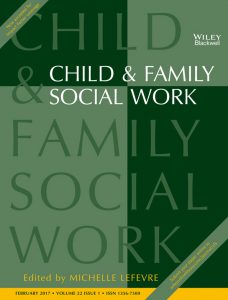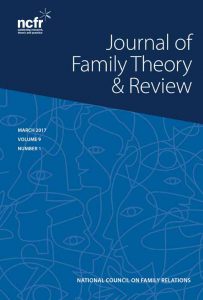Won’t somebody think of the children? Social democratic and neoliberal responses to ‘troubled families’ since 1945
When then Prime Minister David Cameron launched the Troubled Families Programme (TFP) in 2011 he claimed that ‘we’ve known for years that a relatively small number of families are the source of a large proportion of the problems in society’. He then outlined how his government would, in a radical new policy, ‘turn around’ the lives of the 120,000 so-called ‘troubles families’ by the end of the Parliamentary term. It did not work. In its official evaluation, the TFP was...




















1475-6781/asset/JSS.gif?v=1&s=377bb8e0c3d0fcf201f301ded7cf610142072c3e)